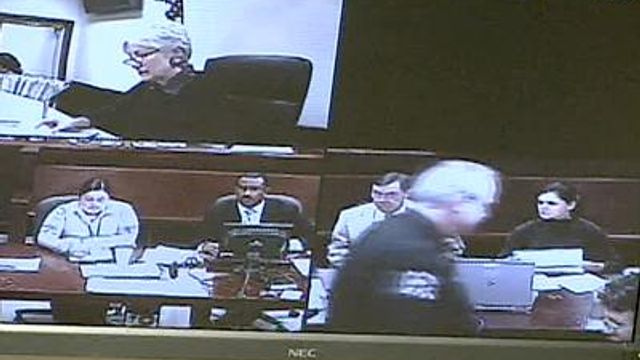Local News
Video Conferencing Links Wake Courts To Jail
A new system in Wake County's court and jail systems will allow inmates to meet a judge by video conference during their first court appearances.
Posted — UpdatedRALEIGH, N.C. — Judges usually see inmates face-to-face in the courtroom, but Wake County is introducing a new system that will allow suspects to make their first court appearances from the jail.
Through video conferencing, inmates will never have to leave their housing floor. They'll be able to pick up a phone, look into the camera and speak directly to the judge.
The goal is to cut down on the time and money it costs to move about 100 prisoners a day from the jail to the courtroom and back again. Jail directors said it has the added benefit of keeping officers and the public safe from potentially violent inmates.
"Now, we have the video stations on each floor, so we've minimized the number of inmates that have to be moved, and it's more secure because they're not being moved into a courtroom where the public is," said detention director Frank Gunter.
"It's really speeding justice and saving taxpayers dollars," said Dave Goodwin, of Wake County Operations.
The county introduced the technology in 2001 with video meetings between inmates and their visitors. The courtroom was wired this past summer. Lorrin Freeman, the new clerk of Superior Court, decided to help jumpstart the program as one of her first duties in office.
"I think sometimes people are afraid things aren't going to work perfectly smoothly.," she said. "I think sometimes you have to get in there, roll up your sleeves, give it a try."
Ultimately, officials hope 90 percent of first court appearances in Wake County will take place in front of a camera.
The program is a collaborative effort between Wake County, the Wake County Sheriff's Office and the court system. Orange County, Robeson County and Davidson County use similar programs.
• Credits
Copyright 2024 by Capitol Broadcasting Company. All rights reserved. This material may not be published, broadcast, rewritten or redistributed.





